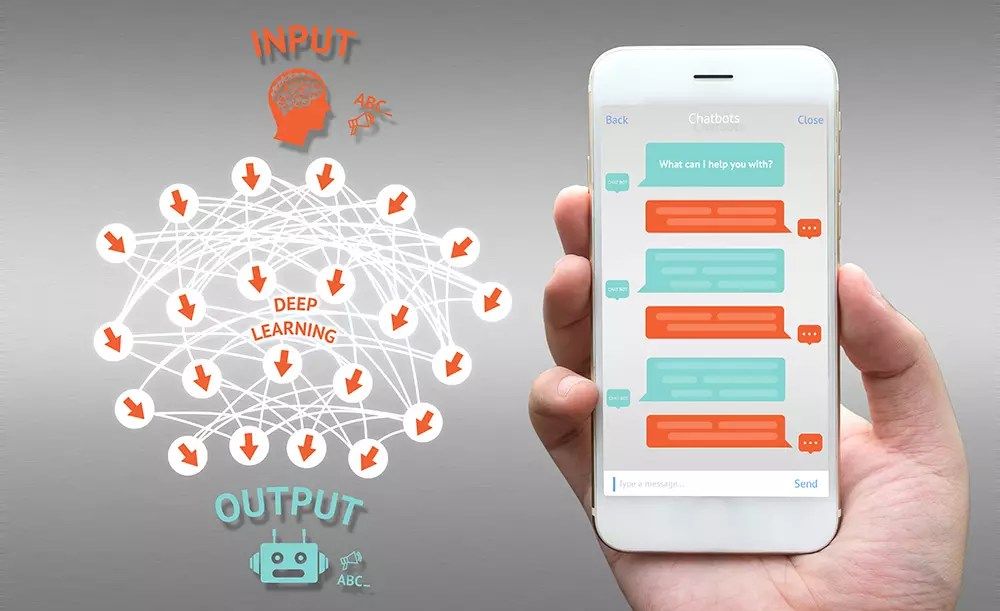How Conversational AI Will Change Customer Service

By 2020, approximately 20.4 billion devices are estimated to be connected to the internet. These IoT devices are getting smarter, connecting to intelligent applications, such as Amazon’s Alexa or Apple’s Siri, and helping consumers make transactions and complete tasks. However, they are also sparking conversational AI, and it stands to change customer service. Explore conversational AI, its benefits and challenges, and how it will help change customer service:
What Is Conversational AI?
Conversational AI consists of an advanced technology that uses natural language processing (NLP) so that computers can comprehend human language. Conversational AI includes a variety of technologies, such as chatbots, advanced notifications and personal assistants.
Technical Challenges
Conversational AI is not without its challenges. Some of the technical challenges conversational AI faces include enhanced user interfaces. For example, product browsing lacks support due to the single-column layout of many chat messaging canvases. Also, there is a lack of organizing the various bots in a directory. Moreover, bots still require time to learn patterns of human behavior and speech, such as the correct use of pronouns, to provide a user experience that is natural and effortless.
Key Benefits
Organizations can use conversational AI in several ways, including via chatbots, and there are myriad of benefits you can leverage from conversational AI that will change customer service. Here are a few key advantages:
1. It Will Reduce Costs and Increase Efficiency.
AI assistants can discover errors with accuracy better than humans. Also, these digital assistants can be available to service customers any time of the day. This will help reduce the need for human resources, reduce costs and operate efficiently.
2. It Will Help Drive Sales
Conversational AI helps to drive sales through personalization. This especially the case in online and mobile shopping, where the experience can seem impersonal. However, chatbots and AI that generate personalized content have turned e-commerce from a static customer experience to a dynamic conversation that has given birth to conversational commerce. Thanks to NLP’s integration into messaging apps, conversational commerce can help businesses drive sales.
3. It Is Applicable Across Several Industries
Conversational AI is not limited to one industry. It can be applied to almost any industry, including banking, fashion and education. Enterprises are already putting conversational AI technology in motion now. Here are a few examples:
HSBC. HSBC bank has incorporated a voice recognition system so that its customers can log into their accounts sans personal identification numbers (PINs) and passwords. After creating a “voice print” to substitute for passwords or PINs, customers can access their accounts using their voices. The system cross-checks more than 100 identifiers that are unique to the customer, including how fast the customer speaks and even physical attributes, such as the shape of the vocal tract and nasal passage.
ING. ING is catapulting open banking by investing in “conversational banking” technologies to improve banking experiences for its customers and to stay competitive. For example, the company is experimenting with humanoid robots named Ginger and Pepper, which could teach children about finances thanks to voice-driven technology made capable through advancements in NLP. The robots were also used on a trial basis in supermarkets for prospective customers.
Spring. Mobile fashion e-commerce marketplace Spring is using its chatbot Spring Bot within the Facebook Messenger app as a modern concierge for customers. The bot acts as a personal shopping service for customers. The bot is demonstrative of how retailers can answer customers’ questions and drive purchases online and via mobile devices.
Duolingo. Duolingo has incorporated chatbots into the iPhone version of its free apps to help users learn a foreign language. These Duolingo Bots are designed to hold a conversation naturally with the user via text messaging. However, the company expects to expand this to use voice recognition technology in the future.
Conversational AI Will Change Customer Service
With all of the benefits that conversational AI brings to businesses, conversational AI will change customer service in a variety of ways. Businesses will be able to serve customers faster. Businesses can also shift and develop frontline staff to creative and strategic roles, such as managing and developing the chatbots. This strategic move can enhance customer service and help enterprises leverage their employees’ knowledge and skills to profit from the company’s digital investments. Chatbots can access customer data via the cloud and use big data to quickly and accurately review the customer’s transactional or communication history. This allows the chatbot to create an enhanced experience for the customer since it would be knowledgeable of the situation. Customer service representatives who may not be as quick as a chatbot to analyze this data may actually hamper the customer’s experience by causing them to wait even longer than they already have so that the agent can review the account. The customer’s time is important. Therefore, it is wise to incorporate technology that will help save you time, such as a chatbot.
Final Thoughts
Conversational AI will provide enterprises with benefits, but consumers as well. Chatbots can help personalize experiences for customers. It is even helping them learn new foreign languages. Customers can bypass the need for passwords and log into their accounts with ease using voice recognition systems. Customers will also be able to conveniently speak to digital assistants to receive updates on their accounts and their financial assets or to receive advice. Enterprise leaders should consider incorporating technologies that leverage conversational AI within their AI strategies to stay competitive and provide an enhanced customer experience.
Image: Zapp2Photo/Shutterstock





